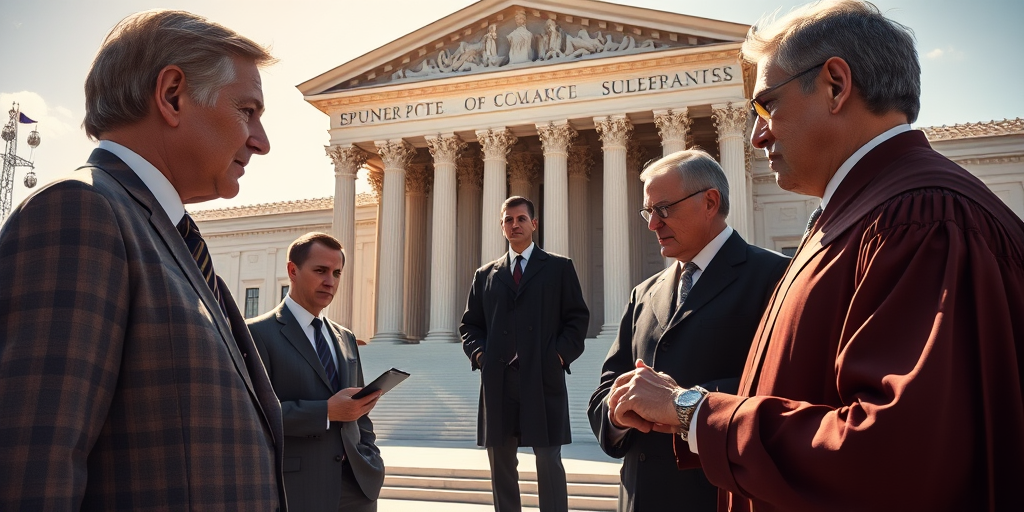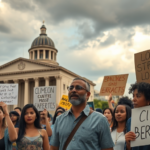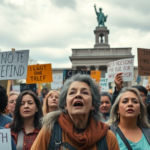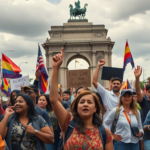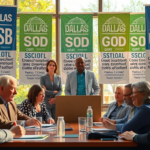SCOTUS Scoop: Faux Diversity, Real Grift
In a series of contentious decisions, the Supreme Court of the United States (SCOTUS) has recently made headlines with rulings that highlight issues of diversity requirements and government oversight. The Pacific Legal Foundation, a nonprofit defending property rights and ensuring equality, has been closely following these developments. These verdicts could have far-reaching implications on local governance and community dynamics across the United States, impacting how diversity initiatives are implemented and interpreted within both legal and educational systems.
A Divided House: The Religious Charter School Case
A significant ruling came when the Supreme Court found itself deadlocked in a case involving the establishment of the nation’s first religious charter school. This was a landmark case that could have set a precedent for religious educational institutions. However, due to Justice Amy Coney Barrett’s recusal, the court ended with a 4-4 split, effectively upholding the lower court’s decision to block the organization’s efforts.
The divided decision underscores the complexities of maintaining a balance between religious liberties and state regulations. This ruling has significant implications for similar future cases, particularly in areas with strong religious communities seeking educational autonomy. Legal analysts suggest that communities may need to reassess their strategies in advocating for religious educational institutions within current legal frameworks.
Fraud without Financial Loss: The PennDOT Case
The Supreme Court also delivered a ruling against a paint company involved in a scheme exploiting the “disadvantaged business enterprise” (DBE) requirement in Pennsylvania. This case against the Pennsylvania Department of Transportation (PennDOT) accused the company of fraud for not genuinely employing a DBE as contractually required. The Court ruled that fraud does not necessitate a financial loss to be actionable, only a scheme to acquire money or property under false pretenses, provided the misrepresentation is substantial.
Justice Clarence Thomas used the opportunity to critique race-conscious mandates, describing them as unconstitutional and highlighting the potential for systematic fraud. His stance raises questions about the constitutional validity of federal contracts containing racial diversity mandates, potentially revisiting these policies’ design and enforcement.
Jim Collins, a local property rights advocate, echoed these sentiments: “It’s high time we reassess how these diversity requirements are implemented. They often create opportunities for exploitation rather than achieving true equality.”
Implications for Community and Governance
These decisions have local impact and community interest implications, particularly in how residents perceive government efficiency and contract fairness. They underscore a broader national conversation about diversity mandates’ functionality and necessity. With the declaration that a contract’s fulfillment doesn’t negate fraud, local governments could face increased scrutiny and potential reforms in awarding contracts.
Moreover, Justice Neil Gorsuch’s concerns that broad fraud claims might encroach upon fulfilled contracts pose significant implications for contractors and local businesses in the region. This verdict calls for clarity and transparency in contract terms and adjustments, potentially influencing the regional market dynamics significantly, especially for businesses engaged in public works.
Persistent Divides: Educational and Environmental Concerns
The court’s recent term spotlighted other divisive areas, such as the freedom of student speech and the federal interventions’ respect—or lack thereof—for sacred indigenous sites. Justices Thomas and Samuel Alito raised alarms over educational institutions’ ability to censor student expressions, amidst broader questions regarding First Amendment rights within American schools. In a separate dissent, Justice Gorsuch condemned the oversight of Apache sacred sites, comparing their potential destruction due to mining projects to demolishing historic cathedrals.
These discussions directly affect local school districts and indigenous communities, encouraging dialogue on how to respect cultural heritage and student rights within legal boundaries. Community organizations are urged to engage actively in fostering understanding and dialogues that align legal interpretations with community values.
Future Directions and Legal Involvement
As the rulings reverberate through legal and local spheres, potential shifts in legislative approaches to diversity mandates and educational freedoms are likely. The importance of originalist perspectives in these debates cannot be overstated, providing a backdrop for ongoing legal seminars and discussions, enabling practitioners to engage with judges and educators on these issues.
The Pacific Legal Foundation invites residents to stay informed about these developments through their newsletter, offering continuous updates and expert commentary from its senior constitutional attorneys, including Anastasia Boden. This resource aims to empower communities by providing clarity and avenues for involvement in shaping future local legal landscapes.
Community Resources and Engagement
For those interested in learning more or contributing to the discussion, community forums and legal workshops will be organized to facilitate exchanges between residents, legal experts, and policymakers. Local libraries and civic centers will also hold information sessions to provide additional insight into how these legal shifts might affect resident’s daily lives and community fabric.
Ultimately, as the country navigates these complex issues, the community’s active involvement will be crucial in shaping policies and ensuring fair implementation of the legal decisions affecting local and national dimensions.

